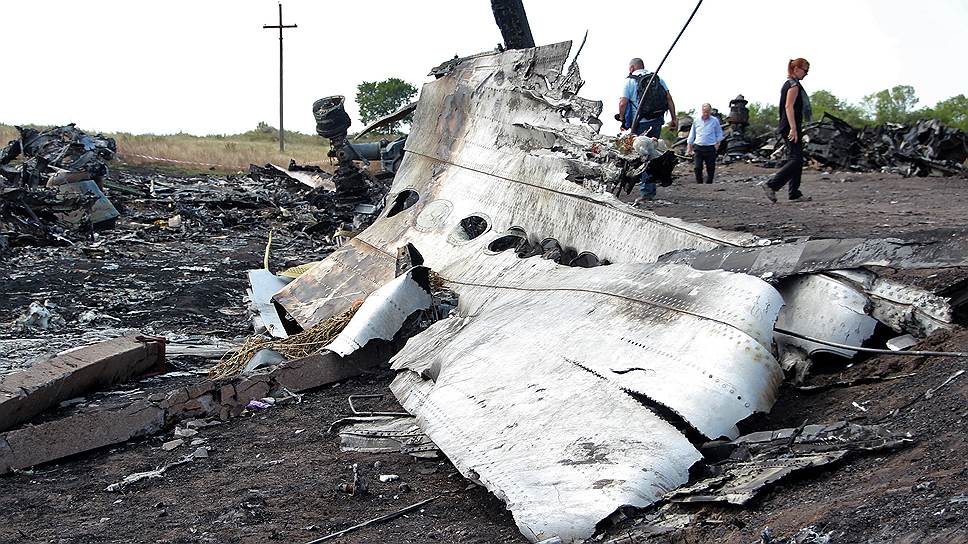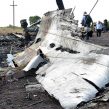
The Air Tragedy That Condemned Putin’s Russia
Publication: Eurasia Daily Monitor Volume: 12 Issue: 135
By:

It was a year ago last Friday (July 17) that the Boeing 777 Malaysian Airlines Flight 17, flying from Amsterdam to Kuala Lumpur, was shot down by a missile over eastern Ukraine, resulting in a loss of 298 lives. The shock of that tragedy awakened Europe and the wider global community to the grave risk that the localized armed conflict in Donbas posed to international security. Russia strenuously denied responsibility, despite its direct involvement in sparking the very war that turned the sky over Ukraine into a battle-zone, and despite supplying the separatists with the surface-to-air missiles that inflicted heavy losses on the Ukrainian Air Force and later shot down the Malaysian passenger jet. International investigations have not as yet delivered definite results, but various independent examinations of the tragedy have firmly established that Flight MH17 was hit by a single missile fired from a Buk-M1 missile system, which arrived to the rebel-controlled part of Donetsk region on July 14; and immediately after the salvo, the weapon was withdrawn back to Russia (Novaya Gazeta, July 13).
Malaysia has presented a request to the United Nations Security Council to set up an international tribunal to name and punish those responsible for this crime, and Russia has taken a firm stance against such prosecutions (Kommersant, July 17). In his phone conversation with Dutch Prime Minister Mark Rutte—who supports the international tribunal proposal together with Australia, Belgium and the United Kingdom—President Vladimir Putin called the initiative “untimely and counterproductive” (Kremlin.ru, July 16). Employing every available diplomatic trick, Russia has succeeded in postponing the vote at the UN Security Council until the end of July and is set to use its “veto” (Rbc.ru, July 18). This maneuvering has inflicted further damage to Russia’s already compromised international credibility and—for all intents and purposes—amounts to an admission of guilt in the murder (quite possibly, by mistake) of 298 innocent people, while refusing to accept any responsibility (Gazeta.ru, July 16).
This self-defeating opposition to the massive international demand for justice reveals the rotten character of Russia’s aggression against Ukraine, which is often characterized as a “hybrid war” (Vedomosti, July 16). Moving hundreds of tanks and artillery systems into the war zone, Moscow speaks only about its “humanitarian convoys”; and while deploying whole battalion tactical groups to score such victories as Debaltseve, in February 2015, Russia admits only to the involvement of some “volunteers” (Carnegie.ru, July 15). This blatant denial is probably seen in the Kremlin as useful deception that makes it possible to exploit divisions in the Western camp, where politicians who find it convenient to claim Russia is “innocent” are a ruble a dozen. However, what is smart for war-manipulators is painfully damaging for the morale of the army, where every contract soldier knows he is likely to be abandoned and betrayed in case of trouble (Novaya Gazeta, July 14). Presently, a new concentration of Russian troops near and inside the borders of Ukraine is accompanied by exchanges of heavy fire across the ceasefire line. And the Ukrainian leadership has few reasons to believe that telephone conferences in the Minsk format will prevent a summer offensive (Rbc.ru, July 17).
The MH17 tragedy has reinforced another feature of Putin’s “hybrid war”—the extreme intensity of vicious propaganda that aims at and, indeed, achieves an unprecedented “patriotic” mobilization (Grani.ru, July 17). Putin sternly warned Dutch Prime Minister Rutte about “unacceptable” leaks from the investigations. But in fact, it is the mainstream Russian media that spins all sorts of mind-boggling speculations as to the shooting down of the Malaysian Boeing 777 flight, particularly favoring the story of a deliberate intercept by a Ukrainian Su-25 fighter (Nezavisimoe Voennoe Obozrenie, July 17). The Russian public does not necessarily believe such crude lies, but it is considered “patriotically correct” to pretend to accept them and to express views corresponding to the official line in opinion polls (Ezhednevny Zhurnal, July 17). This Soviet-style mass readiness to uphold myths of Russia’s heroic struggle for a just cause actually limits Putin’s space for maneuver: admitting any wrongdoing could puncture this myth and result in a sudden and irreparable drop in his approval ratings (Moscow Echo, July 17).
Yet, an additional reason exists for Russia’s indignant and self-incriminating rejection of the proposal to set up an international tribunal under the UN’s aegis. The Kremlin was shocked last year by an international arbitration court’s ruling that Russia had to pay $50 billion in compensation to the Yukos shareholders, and this ruling led to the seizure of valuable Russian state assets in various European states. Another verdict was issued by the European Court of Human Rights awarding Yukos shareholders 1.8 billion euros ($1.95 billion). And in order to avoid payment of this fine, the Russian Constitutional Court rushed a decision on the primacy of domestic legislation over international norms and rules (Forbes.ru, July 14). Almost certainly, in Putin’s mind, these rulings as well as the prosecution of Russian exports of corruption to Europe are parts of a coordinated campaign of pressure on a defiant Russia. And proceedings in the proposed UN tribunal would only contribute to an even tighter squeeze on Moscow (Moscow Echo, July 17).
Putin, quite probably, feels cheated by the West, which, instead of rewarding Russia’s best behavior in refraining from escalating the hostilities in eastern Ukraine, is now increasing this pressure. Hardly any understanding exists in the Kremlin that the tragedy of MH17 has made any further “business as usual” between Russia and the West inconceivable. In one of the striking coincidences in tragic Russian history, Flight MH17 was destroyed on the same day, July 17, that Tsar Nicholas II, his wife Alexandra, and their five children—Olga, Tatyana, Maria, Anastasia and Alexei—were murdered in 1918 by local Bolsheviks in Yekaterinburg. That crime tainted forever the ensuing Soviet regime and even today stands in the way of Russia re-writing and glorifying its Soviet history. Putin’s own regime is implicated in many crimes, starting with the war in Chechnya, unleashed in August 1999, in order to secure his rise to power. But last year’s tragic shooting down of a passenger airliner over eastern Ukraine particularly stands out to highlight the current regime’s callousness and hypocrisy.




